Feeling like you’re wandering without a true north? Like there’s a deeper calling you just can’t seem to grasp?
In the hustle and bustle of daily life, it’s all too easy to drift away from our innermost desires and dreams, to muffle the gentle stirrings of our spiritual essence with the noise of doubt and distractions.

Explore the profound guidance and transformative insights you’ve been seeking on your quest for an enlightened journey forward.
Lean into your intuition and tune into the greater wisdom in higher realms. Learn, apply, and become the best person that you can be.
Before you can make impactful change, you have to experience it on a heart level.
Expand your perspective as you discover new truths that spark personal “aha” moments.
Discover how a spiritual awakening can optimize your outer and inner well-being, fostering mindfulness, balance, and holistic enhancement.
You’re not alone on this journey. Book your free discovery call today and take the first step to living a life ablaze with purpose and spiritual richness.
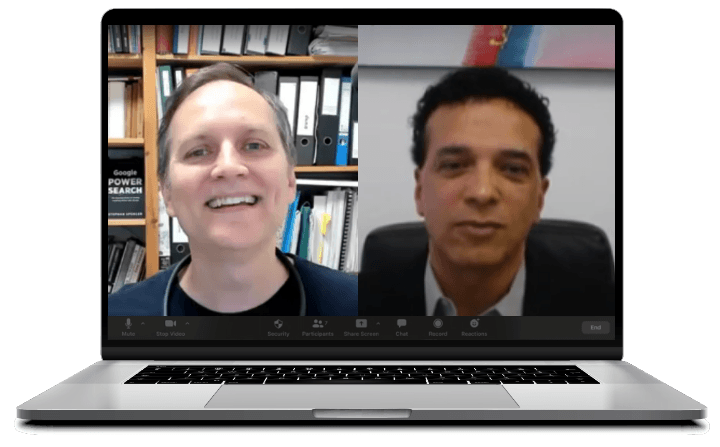
This call is your first step towards shifting inner resistance, breaking free from limiting patterns, and manifesting your true creative power. Together, you’ll explore how to elevate your consciousness and ignite profound change in your life.


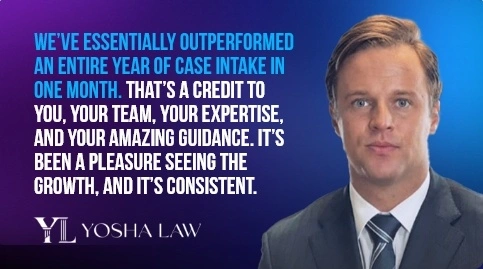

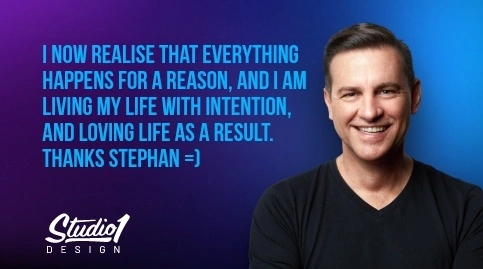

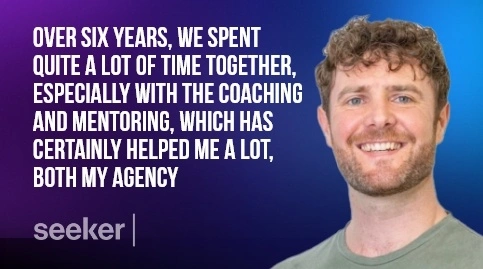

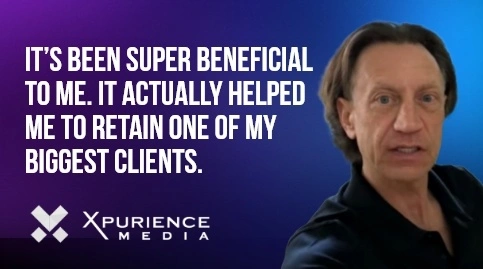

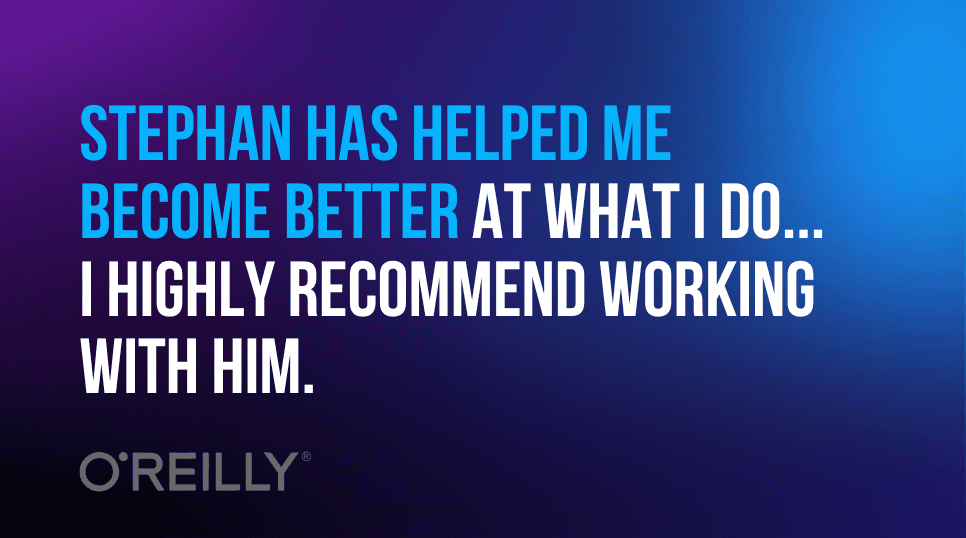
Please fill in the form below and we’ll send you the next steps.

Select a category below
I’m happy to provide you with information on my previous projects.
No matter what your niche, there is plenty of money to be made online! Avoiding ecommerce because you’re suspicious of technology, or you have a lack of experience, is no excuse.
Without seeing the strategy and how it was implemented, I can’t know for sure why your previous attempts at SEO failed. Even if the strategy was sound (which isn’t always the case) there are many variables that can affect the outcome. Common problems include bad content, slow page load time, poor quality back links, and confusing site structure.
When you hire me, the first thing I do is a deep-dive analysis of your site. Then, I tell you exactly what you’re doing wrong, and how to fix it.
Get in touch! We may be able to put together a presentation for your board or management team.
Absolutely. I’m happy to audit your website, and provide a list of recommendations to fix any problems I find.
Again, I’m happy to put together a presentation to show what kind of results can be achieved. Just drop me a line!
As soon as someone clicks on your website, you have amazing insight into who they are, where they came from, and what they’re looking for. Effective marketing is all about data. The more traffic you get, the better your understanding of your average customer. And that’s invaluable!
Spiritual transformation coaching is a holistic approach to personal growth that helps you align your actions and goals with your deeper purpose and values. It combines practical strategies for success with spiritual principles to create profound, lasting change in all areas of your life.
While traditional life coaching focuses primarily on setting and achieving external goals, spiritual coaching is a deeper exploration of your inner world – your beliefs, values, and sense of purpose. It helps you tap into your intuition and connect with a higher power or universal wisdom to guide your decisions and actions.
Not at all. Stephan’s approach is non-denominational and can benefit anyone open to exploring their inner landscape, regardless of religious beliefs. The focus is on helping you connect with your authentic self and live with greater purpose and fulfillment.
Clients often report increased clarity about their life purpose, improved relationships, enhanced creativity and productivity, reduced stress and anxiety, and a greater sense of peace and wellbeing. The specific results vary for each individual but generally include positive changes across all areas of life.
Many clients experience shifts in perspective and small positive changes after just a few sessions. However, deep transformation is an ongoing process. Most people find that committing to at least 3-6 months of coaching yields the most profound and lasting results.
Sessions are customized to each client’s needs but generally include a combination of deep listening, powerful questioning, guided visualizations, energy work, and practical action steps. Stephan draws on his extensive background in business, marketing, and spiritual practices to offer a truly unique coaching experience.
Stephan’s approach is unique in that it combines world-class business and marketing expertise with profound spiritual insights. This allows him to help clients succeed on both practical and metaphysical levels. His background in SEO and internet marketing also gives him a distinctive edge in helping clients increase their online visibility and impact.
While having goals can be helpful, it’s not necessary. Many clients come to coaching feeling stuck or unclear about their direction. Part of the coaching process involves gaining clarity about what you truly want and aligning your goals with your deeper purpose.
Not at all. While coaching can certainly help during times of transition or challenge, it’s equally valuable for those simply seeking to live with greater purpose, joy, and fulfillment. It’s for anyone who feels called to reach their highest potential and make a positive impact in the world.
You’re likely ready if you feel a call to grow beyond your current limitations, desire deeper meaning and purpose in your life, and are willing to look honestly at yourself and make changes. The most important factor is an openness to exploring new perspectives and a commitment to your own growth.
Absolutely! I’ll create a strategy that’s fine-tuned to target the specific people looking to buy your product. With the wealth of analytics data available to marketers these days, it’s possible to understand your customers like never before—and give them everything they’re looking for!
Again, this depends on a lot of factors. If you’d like more information on how I’ve helped specific clients, I’m happy to talk you through previous projects. I can also put you in touch with clients who will discuss their successes with you.
I’ve been in the internet game since the 1990s. I’ve not only watched SEO consultants come and go, but I’ve learned through experience what works, and what doesn’t. I’ve even published a book on the topic! When I make a recommendation, I don’t sugar coat it. I’ll tell you how much it will cost, how long it will take, and how much hard work you’ll have to put in to achieve it. In the end, it’s all about results—and my results speak for themselves.
The truth is, it often takes several months to start seeing results from SEO strategies. This may seem like a long time—especially when compared to other marketing initiatives—but you’re often dealing with complex variables, and a lot of competition. Beware of consultants who tell you they can achieve fast results. They may deliver, but in the long term you—and your ROI—will suffer.
It’s impossible to give you an accurate estimate without knowing the complexity of the project. That said, I can tell you that my services are not cheap! I’m not here to provide quick fixes. If you’re ready to make a serious investment, you’ll see serious results. If you need proof, I’m happy to put you in touch with my previous clients who have seen what I can do first hand.
If you could magically get traffic to your website for free, that would be great. Unfortunately, there are always going to be costs involved in running a website. Whether that means regularly producing content, paying for advertising, or investing in SEO; time, energy, and money are needed to stay competitive. That said, an effective SEO strategy can increase your sales and reduce your ad spend over time.
In one sense—that you don’t have to pay for clicks—SEO is free. But maintaining your Google rankings does take work. If you’re not prepared to set aside a budget and resources for SEO, then you might be better off sticking to paid advertising. In the long term, an investment in SEO will be cheaper. And, my aim is to coach my clients so they can optimize their sites themselves.
There‘s no reason why you can’t do both. In fact, developing an SEO strategy raises some key questions about your core business, who your customers are, and how you go about your marketing. And it can help you solve many problems both offline and online.
What does it tell you if an SEO company is cold emailing you to rustle up some business? For one thing, they’re not very good at their job! Otherwise they’d be drowning in leads due to all the referrals they would receive from clients who rank #1 in Google. So, go ahead and hire them. But don’t say I didn’t warn you!
Social media is vitally important to any marketing strategy. However, the fact is, most transactions still happen outside of social media—usually on a website. If you rely on one social media site for traffic and conversions, you’re putting all your eggs in one basket. A good SEO strategy will help you draw on traffic from a range of sources, minimizing your risk of being left high and dry.
Google is a strange beast, so there are a number of factors to consider when estimating the time it will take to rank. One thing I can say is that results are not often achieved overnight—especially if you want to secure your rankings for the long term. Once I’ve completed an analysis of the opportunities for your site, I’ll provide an honest assessment of how long it will take to achieve your goals.
That’s great. Starting from scratch means you have the opportunity to get things right the first time. Without seeing the site, it’s hard to know exactly how long it will take to rank in Google. I’ll work with you to provide a roadmap for your online success.
Wrong! When it comes to SEO, this is one of the biggest misconceptions out there. Like any marketing initiative, maintaining your Google rankings means constant tweaking, testing, research, and of course, regular updates with fresh, engaging content. If you’re not prepared to set aside a monthly budget for this work, then your SEO strategy is bound to fail.
Generally, Google updates its algorithms several times a year. There’s no way to know when or why a Google update will happen, so it’s best to adhere to best practice SEO guidelines at all times.
A site with no links to it from outside websites must not be a useful, link-worthy site. Such sites, not surprisingly, tend not to get indexed by Google. If they do get indexed for some reason, they are unlikely to rank in search results.
That’s correct. If you want those pages in Google’s index, then you’ll need to allow Googlebot access to the pages without requiring log-in or cookies. To do this, you’ll need to use the Schema.org paywalled structured data element to ensure that Google parses your paywalled or subscription content correctly.
An image alt tag is the text that appears in a small box when you hover your cursor over an image. Alt tags should convey the key information from the image that the user would not receive if she had image loading turned off or she was visually impaired. Search engines also look at alt tags to a limited degree, so it’s helpful if the alt tag contains relevant keywords. Not all images have or should have alt tags defined. For example, graphical borders should not, as that would make for a very frustrating user experience for a blind person using a screen reader.
I’m glad you asked! Check out my book, The Art of SEO.
Featured Snippets are the “answer boxes” that appear at the top of the Google results page. You can attempt to rank for Featured Snippets by providing a concise, useful answer to a common query.
Google truncates title tags at around 60 characters, so keep them between 50-60 characters.
Google truncates the meta description at around 160 characters, so optimal length would be 50-160 characters. Include your keyword if you can, but make sure your meta description entices the reader to click on your page.
Don’t bother with meta keywords. They are not a ranking factor and are useless in terms of SEO.
No, there is no harm in letting Googlebot access your JavaScripts.
Optimizing for Google Images, the image search engine at http://images.google.com, involves two things. First, make sure the image names have good keywords in them, separated by hyphens. Not too long though. Do keyword research to identify the best keywords to use. Second, make the content around the image and the alt tag for the image have good keywords in them. Before you begin optimizing, an important question to ask yourself is: Am I sure I’ll actually attract high-value customers through Google Images? It could be that you’ll end up getting plenty of traffic, but the conversion rate could be quite poor because they aren’t shopping for your product but instead just for an image of it.
You can view your ranking data in Google Search Console, though it should be noted that there is some debate over how accurate this data is.
Submit your XML sitemap to Google via the “Sitemaps” section of Google Search Console. Before you submit your sitemap, make sure it is formatted correctly.
The quick answer to this is that if all your pages are indexed in Google, you have no penalties, and you receive a substantial amount of organic traffic, you’re probably doing most things right. However, without a detailed audit of your site, it’s not possible to know whether there are any serious issues. Some sites receive large amounts of traffic but still have problems that are holding them back from their true potential.
No! You should never buy backlinks. If Google finds out (and they usually do) you will likely be hit with a penalty.
Once upon a time, SEO practitioners were obsessed with finding the perfect “keyword density” (the number of times a keyword was mentioned on a web page) for their content. These days it’s much harder to trick search engines by “keyword stuffing” your pages. Instead, focus on creating great content that your visitors will enjoy. Ultimately, this is a much better strategy for earning rankings.
At a minimum, you’re going to need Google Analytics if you want to see increases or decreases in your traffic. If you want to track more SEO-specific metrics like how many keywords you rank for, number and quality of backlinks, or number of pages indexed, we’d recommend SEMrush, Ahrefs, and LinkResearchTools.
There’s a simple answer to this question: publish more content. If Google notices that you only publish one post per month, then it’s not going to bother crawling your site every day. If you’re publishing regularly but your posts aren’t being indexed, check your robots.txt and XML sitemap to ensure you’re not blocking Google’s bots. Also make sure your site loads quickly and you don’t have issues with thin or duplicate content chewing up your crawl budget.
Technically Google can crawl and index dynamically generated URLs, though they can result in problems like duplicate content (multiple URLs pointing to the same location) or use up your crawl budget. Dynamic URLs are also harder for humans to read, and thus result in less clicks. Ideally, your URLs should be short and simple and include your target keyword. For example: site.com/best-hamburger-new-york
There is a persistent myth that spending money on Google Ads will have benefits for your organic listings. However, this is not the case at all. There is a clear division between Google’s paid and organic departments, and there is no SEO benefit from buying Google Ads.
One of the benefits of SEO is that you don’t have to directly pay for traffic. However, even if you are doing well organically, there is no harm in experimenting with Google Ads if you have the budget. You may want to use Google Ads to test out new niches or keywords before you invest in SEO. One thing to avoid would be bidding on keywords you already rank for, since you can wind up paying for traffic that you may have gotten for free.
If you want people to link to your site, you need to give them a reason to link to you. That means creating amazing content (linkbait), mentioning their name or brand (egobait), or giving them something useful, like an infographic. Once you have something noteworthy, start an outreach campaign to tell people about it.
If you want to get traffic to your website, and customers to buy your products online, then SEO is vitally important. Without it, you either won’t get found, or you’ll get found by the wrong people.
Sure. There are plenty of resources online to learn the basics. We’ve been in the business for several decades; so if you want advice on what really works, get in touch! We also offer SEO coaching services. However, there are some minimum skill requirements, so contact us before you sign up.
While you may be directly competing with a company we’ve worked with to rank in Google, no two businesses are exactly the same. In fact, the keywords you need to target may be completely different.
Sometimes, my clients can easily manage the implementation themselves, with a little guidance. Other times, they need help. While I am just one person, I also have a crack team of writers, developers, and designers at my disposal whom you can count on to get the job done.
I’ll explain everything I recommend in layman’s terms, or, I’m happy to work with a developer or marketing person who is technically minded. When it comes down to it, even the most technical aspects of SEO can be explained in simple terms.
Absolutely! The first thing I do is a technical analysis of your site. Then, I’ll provide you with a list of recommendations, and we can chat about the implementation. If you feel that you and your team can handle the work internally, that’s great. I’ll be there to provide guidance and further recommendations where needed
The best keywords aren’t always the most obvious. For example, if you’re a donut shop, you might think that you want to rank for the term “chocolate donut.” Good keyword research can reveal what your customers might really be searching for, for example “where can I buy donut holes right now.”Sometimes, trying to rank for the most popular or obvious term can be a waste of time and money. I can help you scour the web for keyword opportunities that your competitors may be missing. I’ve helped many clients uncover an untapped keyword niche that’s ripe for the mining.
Sure! Just drop me a line.
Absolutely! The first thing I do when taking on a new client is a deep-dive audit on their website. I then provide you with a list of actionable recommendations to fix any issues.
If you’re a cookie company and you don’t show up in Google for cookie-related terms, then you are missing out on A LOT of customers. If you think your other marketing efforts make up for that, then that’s great. But for most companies, they don’t. SEO can always add something to the mix.
While your developer or IT department might understand the basics of SEO, it’s not all technical. A large part of a successful SEO strategy is creating fresh, engaging content. An SEO professional ideally will have a grasp on both the technical aspects of web development and the more creative aspects of marketing. Needless to say, this skill set is rare!
I try and give back the community in many ways. Get in touch, and we can talk about your needs.
Even if you’re a huge brand making a ton of money online, there are always opportunities to make more! Why rest on your laurels when you could be dominating your competitors?
WordPress plugins can be great for automating tasks, and making website maintenance more efficient. However, if you rely on plugins alone, your SEO strategy will ultimately fail. SEO takes an investment of time, money, and resources to maintain your rankings.
This following document sets forth the Privacy Policy for this website. We are bound by the Privacy Act 1988 (Crh), which sets out a number of principles concerning the privacy of individuals using this website.
We collect Non-Personally Identifiable Information from visitors to this Website. Non-Personally Identifiable Information is information that cannot by itself be used to identify a particular person or entity, and may include your IP host address, pages viewed, browser type, Internet browsing and usage habits, advertisements that you click on, Internet Service Provider, domain name, the time/date of your visit to this Website, the referring URL and your computer’s operating system.
Participation in providing your email address in return for an offer from this site is completely voluntary and the user therefore has a choice whether or not to disclose your information. You may unsubscribe at any time so that you will not receive future emails.
Your personal information that we collect as a result of you purchasing our products & services, will NOT be shared with any third party, nor will it be used for unsolicited email marketing or spam. We may send you occasional marketing material in relation to our design services.
If you choose to correspond with us through email, we may retain the content of your email messages together with your email address and our responses.
Some of our advertising campaigns may track users across different websites for the purpose of displaying advertising. We do not know which specific website are used in these campaigns, but you should assume tracking occurs, and if this is an issue you should turn-off third party cookies in your web browser.
As you visit and browse Our Website, the Our Website uses cookies to differentiate you from other users. In some cases, we also use cookies to prevent you from having to log in more than is necessary for security. Cookies, in conjunction with our web server log files or pixels, allow us to calculate the aggregate number of people visiting Our Website and which parts of the site are most popular.
This helps us gather feedback to constantly improve Our Website and better serve our clients. Cookies and pixels do not allow us to gather any personal information about you and we do not intentionally store any personal information that your browser provided to us in your cookies.
P addresses are used by your computer every time you are connected to the Internet. Your IP address is a number that is used by computers on the network to identify your computer. IP addresses are automatically collected by our web server as part of demographic and profile data known as traffic data so that data (such as the Web pages you request) can be sent to you.
We do not share, sell, lend or lease any of the information that uniquely identify a subscriber (such as email addresses or personal details) with anyone except to the extent it is necessary to process transactions or provide Services that you have requested.
You may request access to all your personally identifiable information that we collect online and maintain in our database by using our contact page form.
We reserve the right to make amendments to this Privacy Policy at any time. If you have objections to the Privacy Policy, you should not access or use this website. You may contact us at any time with regards to this privacy policy.